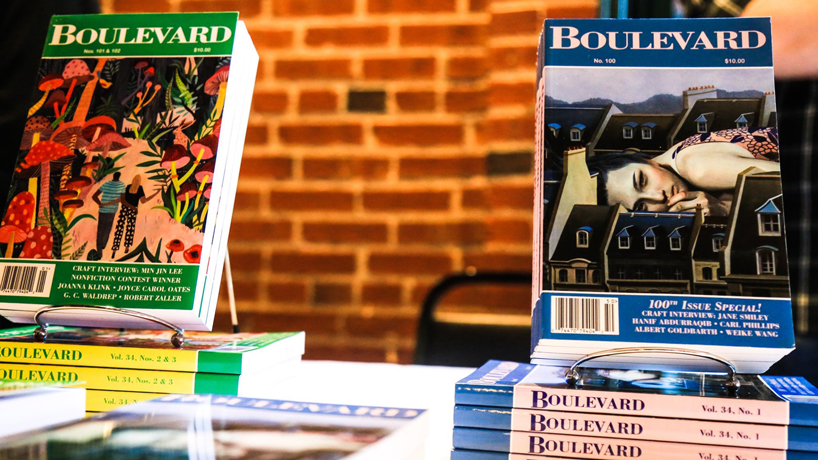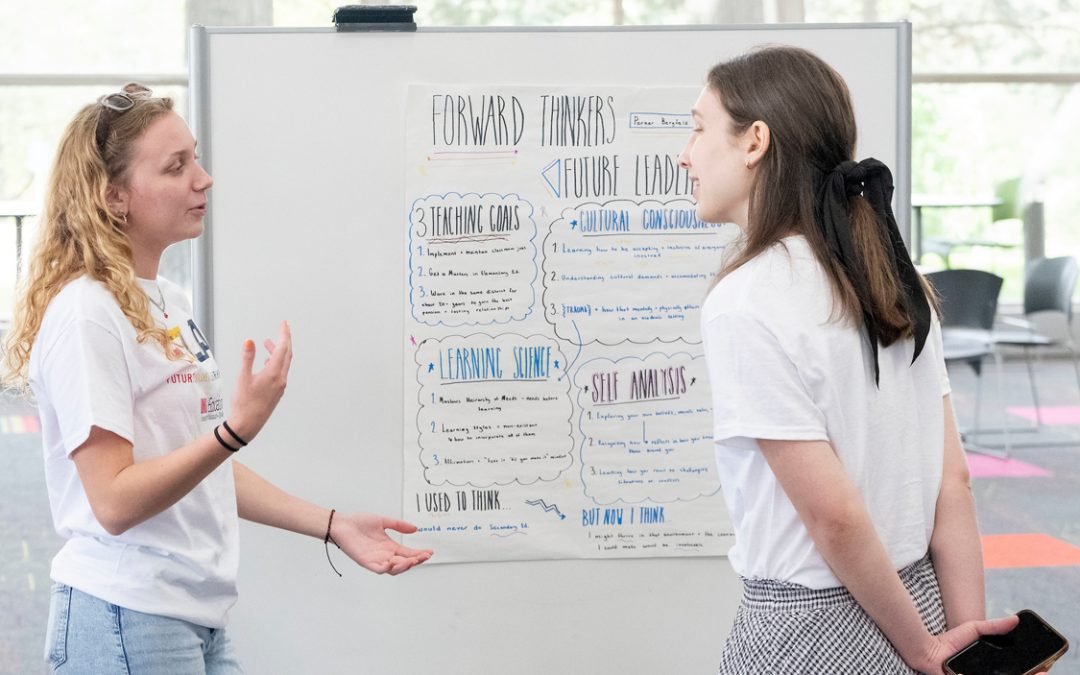
Thanks to a new agreement, UMSL students in the creative writing MFA program will hone their skills while contributing to Boulevard magazine, one of the nation’s most prestigious literary journals. Under the terms of the new partnership, MFA and MA students enrolled in “English 5190: Literary Journal Editing” will read submissions for Boulevard print editions and be credited as editorial assistants. (photo courtesy of Boulevard)
For more than 20 years, aspiring writers at the University of Missouri–St. Louis have produced Natural Bridge, a student-run literary journal.
Production of the journal has been a core aspect of the creative writing MFA program, particularly in reviewing poetry, fiction and essay submissions. However, reduced funding related to the COVID-19 pandemic made a print edition infeasible this school year.
The situation threatened to leave a void in the curriculum, but thanks to a new partnership with Boulevard magazine, UMSL students will continue to hone their skills while contributing to one of the nation’s most prestigious literary journals.
UMSL students started reading for Boulevard last semester, though the agreement between the journal and the university makes the ongoing relationship official.
Under the terms of the new partnership, MFA and MA students enrolled in “English 5190: Literary Journal Editing” will read submissions for Boulevard print editions and be credited as editorial assistants. Additionally, the Boulevard website will now host Natural Bridge Online, the digital successor to the print edition, for which students will also evaluate submissions.
John Dalton, associate professor of English, and Jessica Rogen, who edits Boulevard independently of her position in University Marketing and Communications, approached the program about the potential for a new partnership.
The program and journal already had some ties. Dusty Freund, managing editor of Boulevard, is a graduate of the MFA program, and Boulevard and Natural Bridge previously hosted public readings together.
It made the partnership a natural fit, as well as an excellent opportunity for students.
“It has a reputation of publishing some of the best writers and poets in the country, so that was an exciting opportunity to get our MFA students partnered with Boulevard,” Dalton said.
Historically, the MFA program dedicated one class of about eight to 12 students to reading and discussing submissions for Natural Bridge. Students also laid out and typeset the journal, but convening a weekly editorial jury was really the crux of the experience.
“The primary thing that I liked about the journal was how it gave our MFA students a chance to sit and read hundreds and hundreds of submissions,” Dalton said. “You might not think that would be a major part of an MFA program, but actually, when you’re figuring out how to write, reading submissions for a literary journal is one of the most advantageous things you can do.”
Dalton elaborated, saying that young writers often have an inflated sense of their own work and are eager to submit pieces. However, reading hundreds of literary submissions is often humbling and helps them tighten their writing.
“That was a key part of our program I absolutely did not want to lose,” he added.
Thus far, the class has been helpful to the small Boulevard staff, which usually works its way through mountains of submissions with the help of volunteer readers.
“We still have those volunteer readers, but this is a different kind of situation,” Freund said. “The people in these classes are oftentimes a bit more thoughtful with their responses. They take more time with the submissions than a volunteer might, and we end up sending them a lot of work that volunteer readers have already gone through. It’s a story, poem or essay that’s in the ‘maybe’ range. We’ll send it to the class, and one or two people will end up reading it.”
Students in the program are mostly new to this type of regular deliberation, but Dalton finds that they develop their critical faculties quickly. The process also exposes them to a wide variety of literature. Dalton said it’s especially helpful in teaching fiction writers how to talk about poetry, while Freund noted his time in the program introduced him to a new world of contemporary fiction.
Boulevard’s established audience is another advantage of the new partnership. Freund, a two-time managing editor of Natural Bridge, felt the publication never reached as many people as he would have liked despite the high-quality work.
“That was kind of frustrating,” he said. “We would always submit for the Pushcart Prize, and we just didn’t have great luck getting things republished in anthologies to get our name out there in spite of the fact that the journal had been around for 20 years.”
Students will now have some creative control over a project that reaches a significant subscriber base. Plus, it’s always exciting to see your name in print.
“That’s something that they can add on their resume,” Dalton said. “Now, granted, it’s not like that’s going to throw open the world to you, but it’s a very cool thing to be able to have a physical magazine where you are listed as an editorial assistant – one that’s very well known.”














